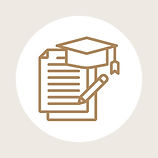
Music and Self-Care Customized Program
Through one-on-one music and self-care guidance, we create a unique music experience. We firmly believe that everyone has a unique life story and needs, and we will accompany you to use music to embrace yourself and embark on a journey of self-exploration and growth.
Embrace yourself through music and start your own growth
Are you struggling to find balance?
Under the pressure of modern life, you may find it difficult to balance your mood or be often troubled by past pain. Whether it is facing challenges in interpersonal relationships or struggling to find your life direction, these problems may make you feel uneasy or tired from time to time.
You may have tried self-adjustment or other assistance methods, but have not been able to find a truly effective solution.
Let music help you get rid of stress and find peace


Let life return to balance and live a new life
Imagine how different your life will be when you find an outlet for your emotions! You can use music to:
Stress Management and Emotional Regulation
Self-awareness and exploration
Dealing with interpersonal relationship issues
Career Exploration and Transition
Overseas life and cultural adjustment
Searching for the meaning of life
Find direction from music, and regain the meaning and motivation of life


Course Teachers
Born in Taiwan, a music therapist certified in the United States (MT-BC) and licensed in Germany (DMtG), she currently works at the State Psychiatric Hospital in Munich, Germany.
Related experience
KBO Psychiatric and Psychological Treatment Hospital in Munich, Germany, full-time music therapist and internship supervisor, November 2022 to present
Taiwan Music Therapy Association Legislative Advisory Group, Member, 2021-Present
Full-time music therapist at the Mental Health Center of the University Hospital of Würzburg, Germany, July 2021 - October 2022
International Association for Music and Medicine, Communication and Outreach Committee Member, April 2020 - September 2020
Volunteer Research Assistant, Music Lab, Department of Psychology, Harvard University, September 2018 - December 2018
National Taiwan Normal University Music Digital Archive Center, Research Assistant, February 2014 - March 2016
Course Introduction
Music and Self-Care Customized Program
Embrace yourself through music and start your own growth
Service Process

Fill in the form online

Appointment and Payment

Curriculum Implementation and Delivery Strategies

After-class practice and follow-up adjustments
Music and Self-Care Customized Program
The customized course content includes:
Receptive Music Listening Experience
Customized music selection, guided music imagery, emotional regulation and relaxation exercises
Creative musical expression (increase or decrease as appropriate)
Songwriting and arrangement, instrumental improvisation, sonic exploration and expression
Music Life Review
Exploration of important musical memories, sorting out personal life stories, and organizing musical history

other
Personalized content, art and creative expression
Flexible teaching methods
Course Type and Location
Online Google Meet
50 minutes of online interaction per session Progress tracking and adjustment Course records and feedback


This plan is for you if you:
People who want to enhance their inner strength through music are looking for the meaning of life, people who want to explore themselves, people who need effective emotional regulation and stress management, people who are ready to welcome a new stage in life, people who pursue self-growth, and people who are looking for professional guidance to achieve personal growth and breakthroughs.
If you want to be supported and improved through music, this course is for you.
Music and Self-Care Customized Program
Embrace yourself through music and start your own growth
Fill out the evaluation form
FAQ
Reservation Information
Cancellation Policy
Cancellation before 24 hours: Full refund
Cancellation within 12-24 hours: 50% fee
Cancellation within 12 hours: Full payment will be charged
Course Requirements
Stable network connection Quiet and private space Basic audio equipment Online on time
Disclaimer
We are not doctors or psychologists and do not provide psychological counseling services. Customized courses are based on years of experience. The results of participation may vary due to individual differences and are affected by many factors, including but not limited to your living conditions, experience and attitude towards life. If you do not agree with the above statement, please do not participate and seek medical intervention from a professional doctor or psychologist when necessary.
Taiwan Psychological Counseling Hotline
Taiwan Psychological Counseling Hotline For any emergency, please call 110 to contact the police. Anyone (not limited to women or children) who experiences domestic violence, sexual assault, sexual harassment, etc. can call the 113 Women and Children Protection Hotline. If you are emotionally unstable and intend to harm yourself, please consider calling the following hotlines: Ministry of Health and Welfare Reassurance Hotline Open 24 hours a day, 365 days a year, free of charge 1925 (Still Love Me) Ministry of Health and Welfare Telephone Consultation Directory: http://www.mohw.gov.tw/cp-23-135-1.html Lifeline Open 24 hours a day, 365 days a year 1995 (Save Me) Lifeline International Taiwan Headquarters: http://www.life1995.org.tw/ Teacher Chang Hotline Monday to Sunday 8:30-22:00 1980 (Still Help You) Teacher Chang Global Information Network: http://www.1980.org.tw/

Free online consultation:
Want to learn about music therapy but don’t know how to choose Zoe’s courses or services?
Book a 30-minute free consultation now to find the course that suits you best and study together





